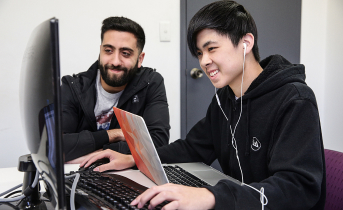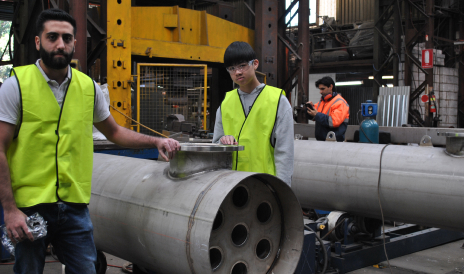David
David was one of the first students to join the Big Picture Program at LA Services after a recommendation from his principal at Liverpool Boys High School. David had preconceived notions about what a manufacturing company is and what they do, which he felt didn’t align with his interests. However, upon viewing the technologies used by LA Services, David took an interest in the company and became involved in the Sigma project. Through engaging with this project, he learnt about the hardware and the operational side of the business. Working on these projects allowed David to interact with people from different industries as well as teaching him effective communication skills.
However, it also made him realise that he had previously lacked the research and literature skills to properly succeed in a technological field, something which his time at LA Services helped to remedy. This led to time spent with data scientist, Ming Zhao, who further helped in progressing his skills with coding. Through his time at LA Services, David seems to have worked better than he would have at school. This could be attributed to the more mature environment with strictly adult workers guiding him through the workplace. He also believes that the long-term internship was a necessity in his most formative stages of life when he started to seriously consider his future in the technological field. Ultimately David largely benefited from his time at LA Services, not only because of the skills he learned, but he also received an offer from UTS to join their university as a research assistant with a full scholarship.




Core Project and Skills Learnt
The core project that was worked on while David was spending his time at LA Services was the Sigma project. At first he was mentored by General Manager, David Fox, who delved into real life skills that are needed in any company by going through problem solving and effective communication skills, then later going through the basics of thesis writing and academic research. This project tested David’s skills mainly in problem solving, often utilising ancillary skills such as writing and visualising through the use of diagrams and whiteboard brainstorming.
This allowed for more freedom and creativity as it allowed for David and his mentors to express themselves and their ideas without being shackled down by any rules or formalities. This also allowed for David to network and interact with people who were in the technological and engineering field, giving him more of an insight into the industry.
Creating a close bond through mentoring is a great way to understand the perceptions and needs of our students in order to create a deeply engaging work environment . And in turn, we change these perceptions accordingly.
